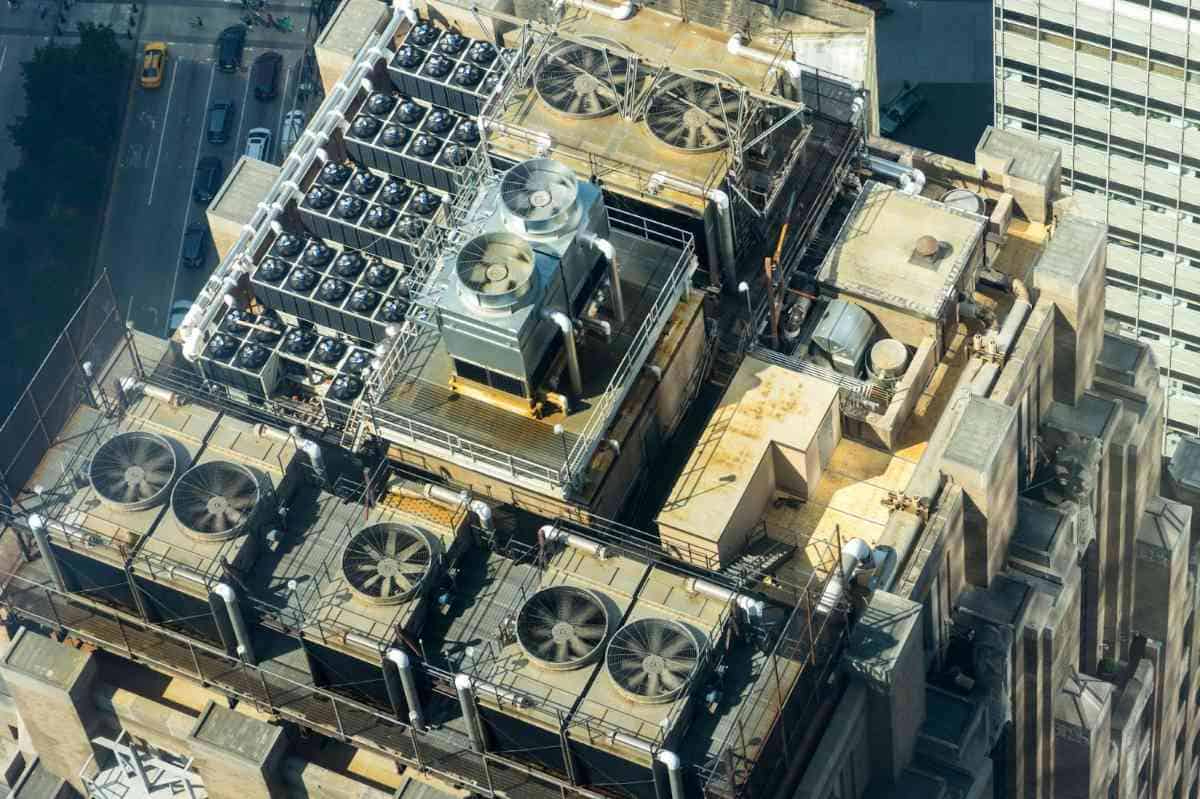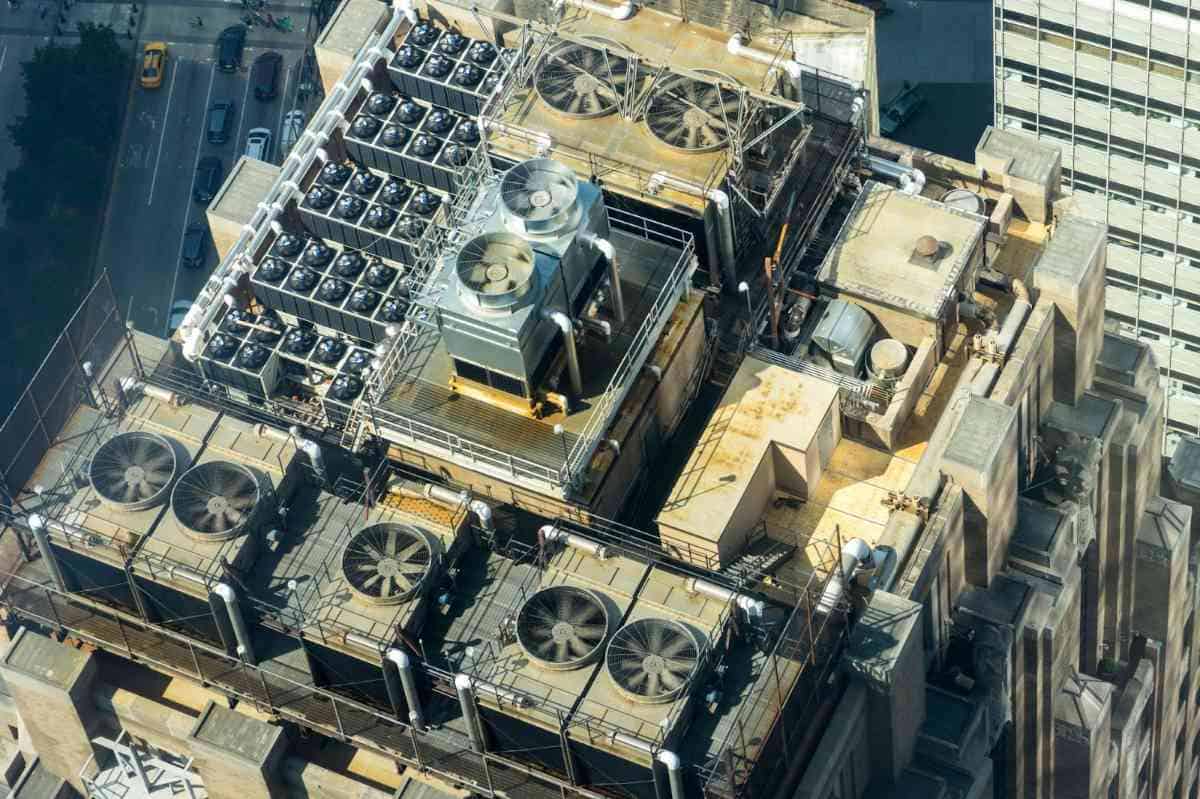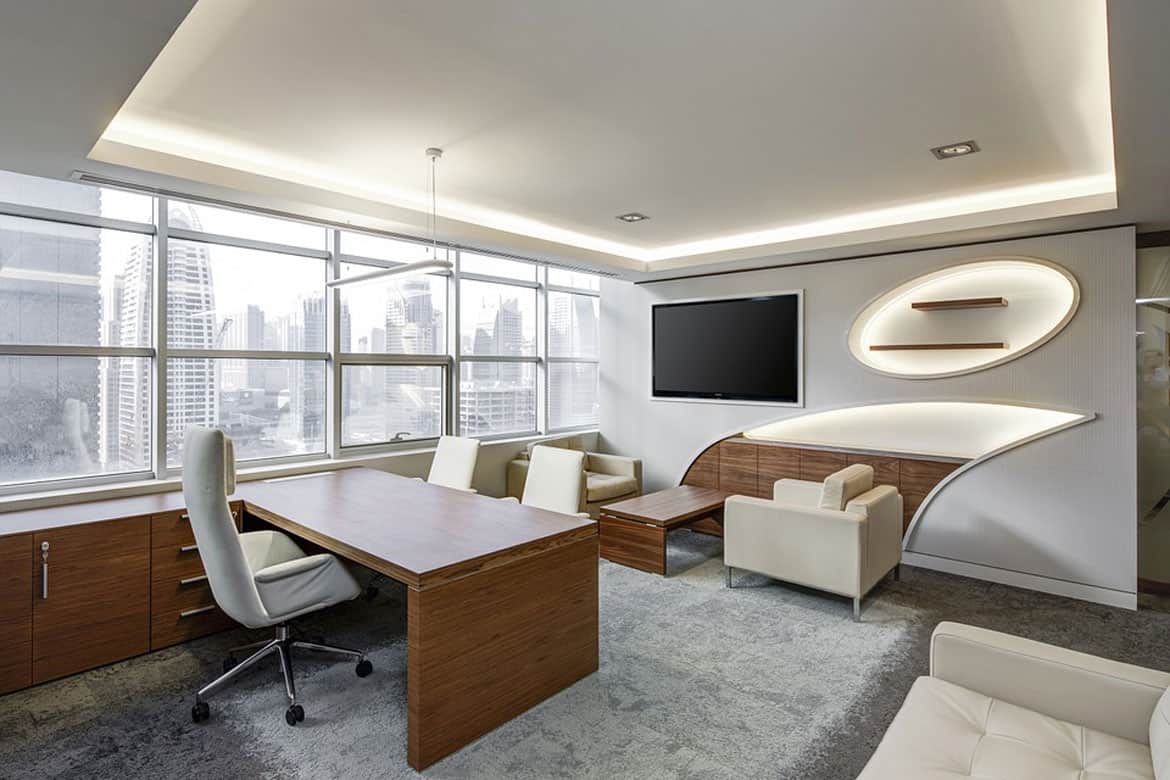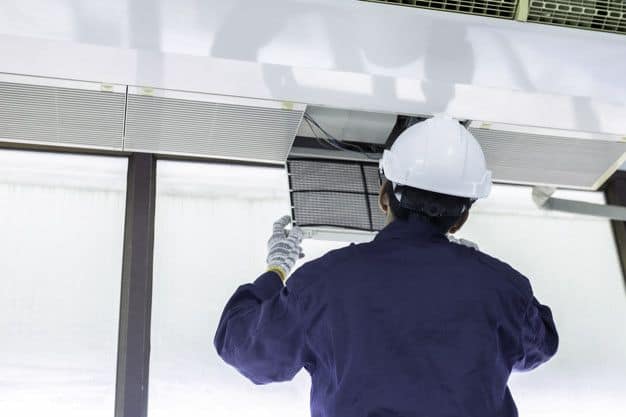Building owners, facility managers, and commercial building tenants know the importance of keeping commercial HVAC running: If it gets too hot to work, productivity and profit both tank. Consistently poor performing commercial heating and cooling can also prompt tenants to relocate their businesses elsewhere—an additional loss of revenue for the building owner.
Just in 2020 alone, the HVAC industry was valued at $57.8 billion USD, and that number is only expected to rise to $82.5 billion by 2026. With the increase in demand, it’s more important than ever to stay on top of maintenance and repairs for your heating and cooling systems.
In this article, you’ll learn the basics of commercial HVAC service, the essentials of installation, and what to look for in a contractor.
What You Need to Know About Commercial HVAC Service
Before getting into what you need to know about HVAC service for commercial buildings, you should know the different types of systems. These include:
- Packaged Systems: All-in-one units with an integrated thermostat, these systems work best in buildings that don’t have room for bigger options, often mounted in windows in hospital and hotel rooms.
- Split Systems: This kind of HVAC system is often connected to the ductwork of smaller commercial buildings, as well as residential spaces. The downside to these is that for every room you want cooled, you may need another unit.
- Rooftop RTU HVAC: Also known as a rooftop unit, the RTU needs weather-resistant housing to protect components. Some RTUs just heat, whereas others just cool, and yet others do both. Just as importantly, an RTU is also an air handler—circulating air through the ducts.
- VRF Systems: Only recently introduced to the U.S. from Japan in the last few decades, VRF systems are ductless and don’t take up much space. Additionally, VRFs are up to 30% more efficient than their traditional counterparts.
Commercial HVAC service addresses some common problems, and knowing about these in advance can give you an idea of what to look for. The symptoms of refrigerant leakage, for example, are usually to be found in oil around your valves and other AC connections, or if the system just isn’t generating cool air.
Other HVAC problems include:
- Dirty filters: You should change your filters four times a year, if not once a month, depending on advice from your technician.
- Dirty condenser coils: Very easy to spot from the outside, dirty condenser coils need to be cleaned of dirt, debris, dust, and other clutter that impacts function.
- Noises: If your air conditioning unit begins making strange noises, you know there’s a problem.
- Clogged drain: Strange-smelling air is the primary symptom of a clogged drain. Left unaddressed, the problem will impact your indoor air quality.
- Malfunctioning economizer: You know your air conditioners’ economizer is misfiring when the air outside is cooler than what’s inside.
- Loose evaporator belt: If your HVAC unit is making strange noises or there’s a reduction in airflow, check your evaporator belt. It might be loose.
Hands-on commercial HVAC maintenance helps extend the life of your equipment, improving energy efficiency, and reducing the cost of operation. As soon as you identify something wrong with your unit, you can get a fix started.
Commercial HVAC Installation: Dos and Don’ts
If you’re looking to install a new cooling and heating system, there are some essential dos and don’ts you should keep an eye out for from your selection of commercial HVAC companies.

Your HVAC installation company should:
- Make sure you have the correct-sized unit for the space
- Test out the new system after installation
- Explain the warranty and its terms to you
On the other hand, your commercial HVAC service shouldn’t:
- Neglect maintenance and fail to explain how you can maintain your unit yourself
- Tell you to do installation work yourself
- Tell you to defer needed repairs
A dependable heating and air conditioning installer will explain to you in detail what you need to do to keep your HVAC delivery quality service. You should leave the complicated installation to the professionals, but you should also know the system’s requirements once it’s installed—both functional and warranty specifications.
What to Look for in a Commercial HVAC Contractor
You know you’re looking to hire commercial HVAC repair technicians, or install a new unit. Installing and maintaining air conditioning for large buildings can be a complicated process. So you might be wondering: What do you look for in a commercial HVAC contractor?
First, your contractor should be knowledgeable, with a positive customer track record to match. How many years has this contractor been in business? Is the company up-to-date on the latest technology and product offerings?
Second, your contractor should be certified with the International Code Council. You should also ask for paperwork that shows insurance and bonding, and ask what certifications the company has. It’s a good sign if the company requires technicians to have North American Technician Excellence (NATE) certifications—a demonstration of knowledge and skill.
| Learn how to maintain high-quality air with these blogs: |
Third, your commercial HVAC contractor should provide fairing pricing for the work. As with any work, you get what you pay for. The cheapest options will most likely not be the best. Compare a few estimates with details of services offered.
Breathe Easier with Commercial-Grade HVAC
Focusing on pre-eminent customer service, AirFixture helps business owners and facility managers deploy cost-effective air quality control. Paired with hundreds of projects completed over the last 15 years, AirFixture helps customers save up to 30% in facilities-related operating costs.
Contact a technician today, and start to breathe easier tomorrow.
Featured Photo Source: Dan LeFebvre
Timber Construction Techniques for Your Next Project
When you think of modern construction methods, many people think that steel and concrete make the strongest buildings. However, wood - specifically,...


